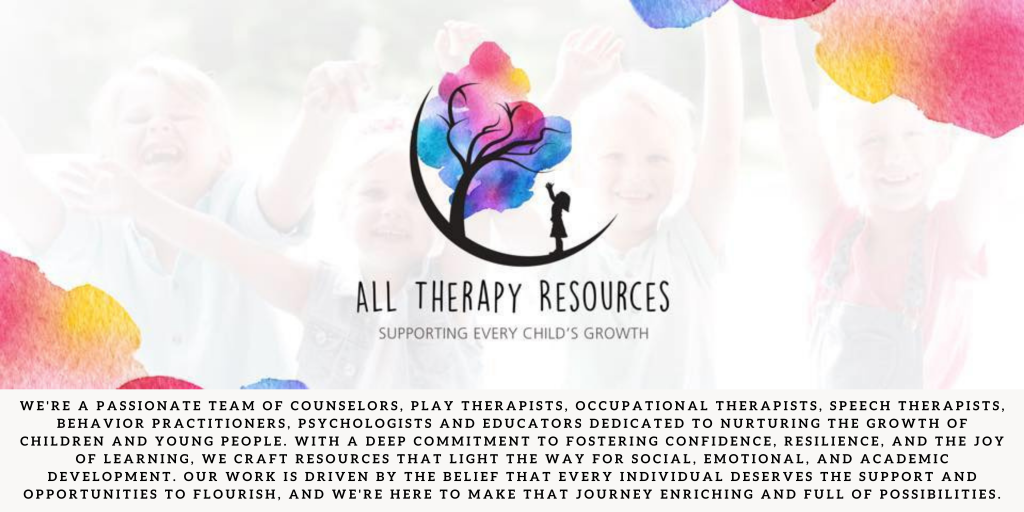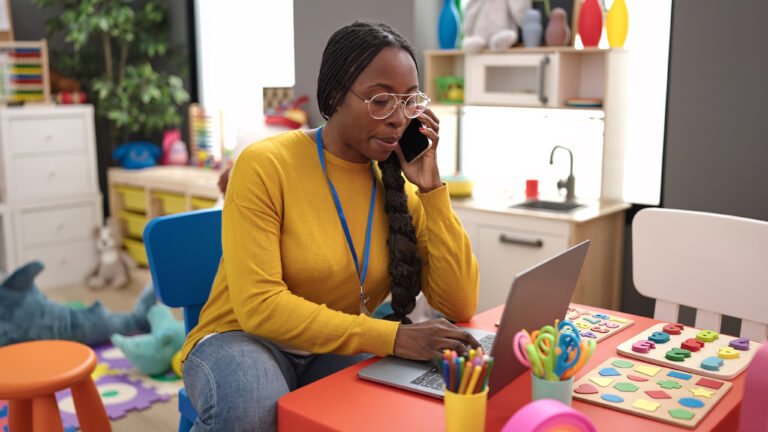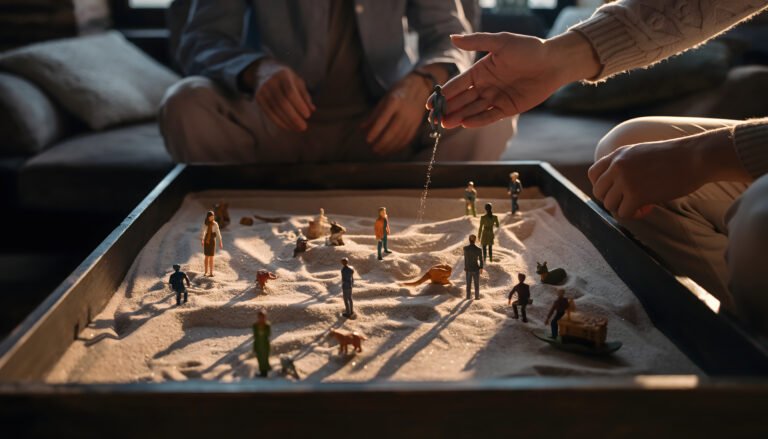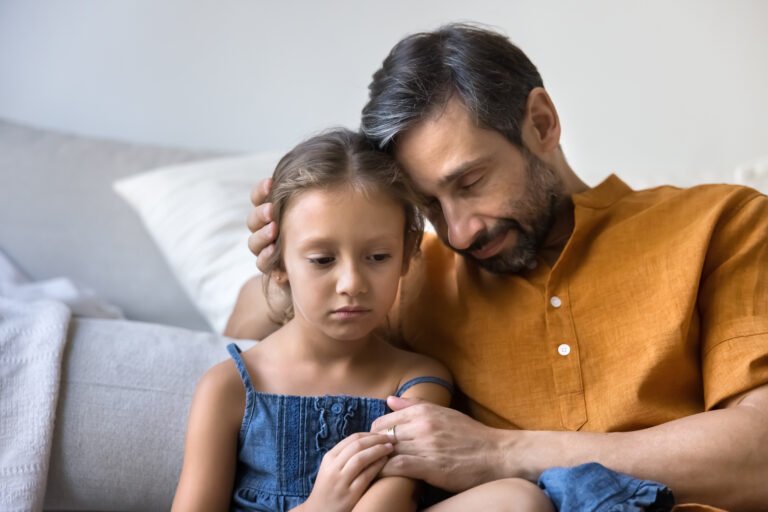Integrating Social Skills into the School Curriculum: A Comprehensive Guide
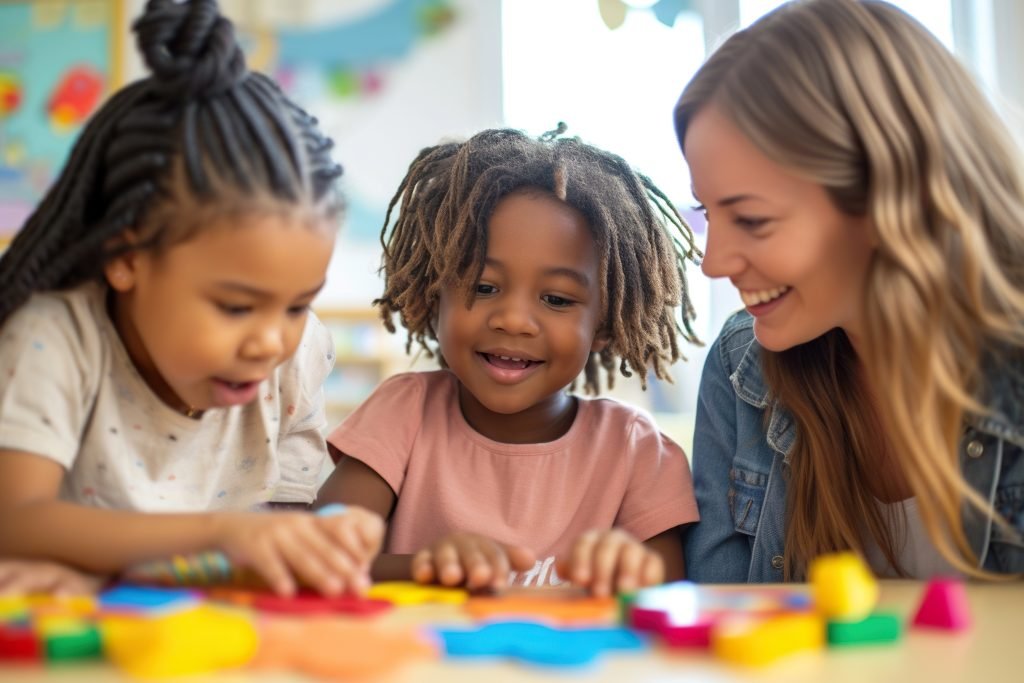
Hey there! Ever noticed how some kids just seem to get along with everyone and handle social situations like pros? That’s not just luck—it’s the result of strong social skills. These skills, like communication, empathy, and teamwork, are just as important as academics. So, let’s dive into how we can integrate social skills into the school curriculum to help our students succeed in every aspect of life.
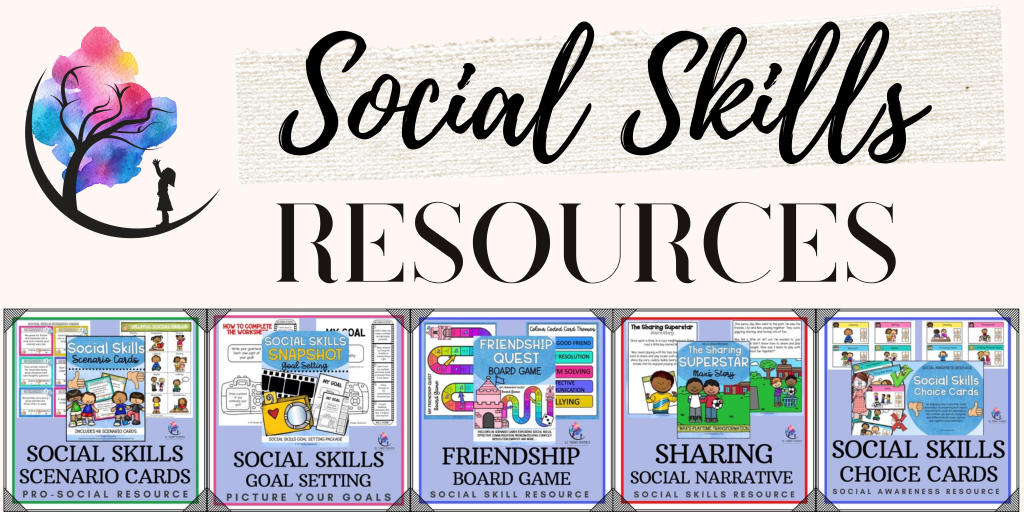
Why Social Skills Matter in Education
First things first, why are social skills so important? Here’s a quick rundown:
- Boosts Academic Performance: Believe it or not, students with good social skills often do better in school. They work well in groups, aren’t afraid to ask questions, and can handle stress more effectively.
- Improves Emotional Health: Kids who can navigate social situations tend to be happier and less anxious. They know how to manage their feelings and resolve conflicts peacefully.
- Enhances Relationships: Being able to communicate and understand others helps students build strong friendships and positive relationships, which are crucial throughout life.
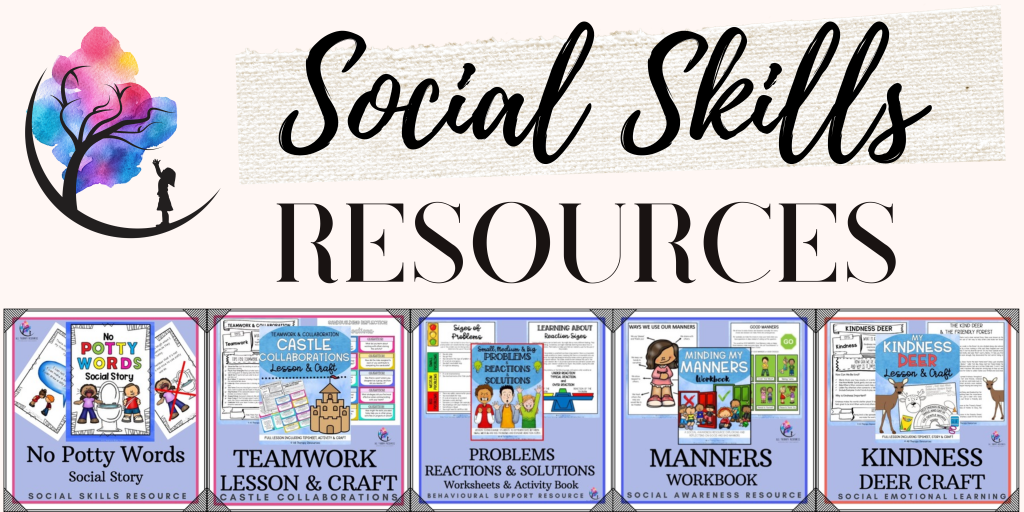
Strategies for Integrating Social Skills into the Curriculum
Now, let’s talk about how we can weave social skills into everyday school life:
1. Dedicated Social Skills Lessons
Weekly Lessons: Set aside time each week to focus on a specific social skill, like listening or empathy. Use role-playing and group discussions to make these lessons interactive and fun.
2. Social Skills Across Subjects
Incorporate in All Classes: Whether it’s group projects in science or debates in language arts, there are plenty of opportunities to teach social skills. For instance, teamwork is key in group projects, and debates can enhance communication skills.
3. Modeling and Reinforcement
Teachers as Role Models: Show students how it’s done! Demonstrate positive social behaviors and praise students when they follow suit. This helps reinforce good habits.
4. Peer Mentoring Programs
Older Students as Mentors: Pair up older students with younger ones. This not only helps the younger kids learn social skills but also gives the older students a chance to practice leadership and empathy.
5. Use of Technology
Educational Apps: There are plenty of digital tools and apps that can help students practice social interactions in a controlled environment. These can be especially useful for shy or anxious kids.
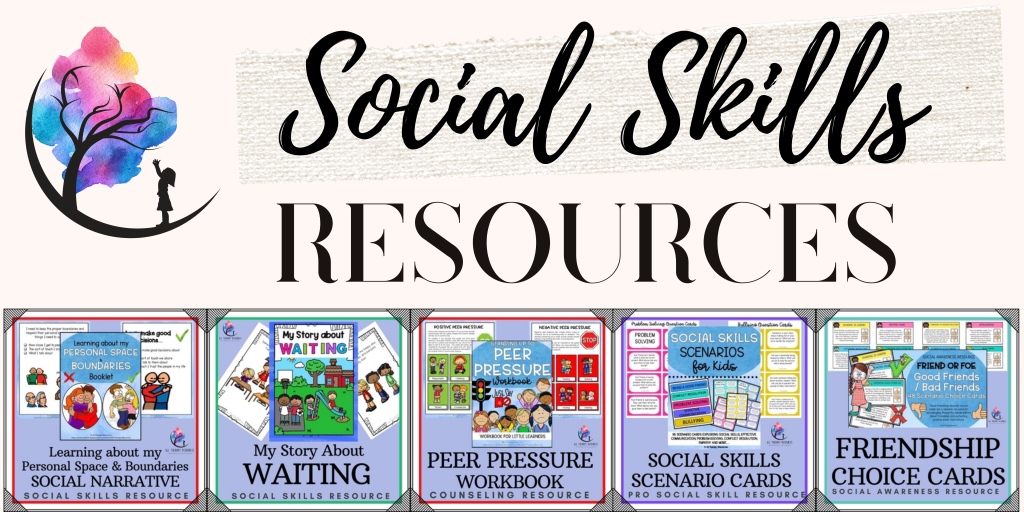
Practical Resources for Teaching Social Skills
To make this journey easier, here are some awesome resources you can use:
SOCIAL SKILLS GOAL SETTING PACKAGE – Social Skill & Friendship Snapshot
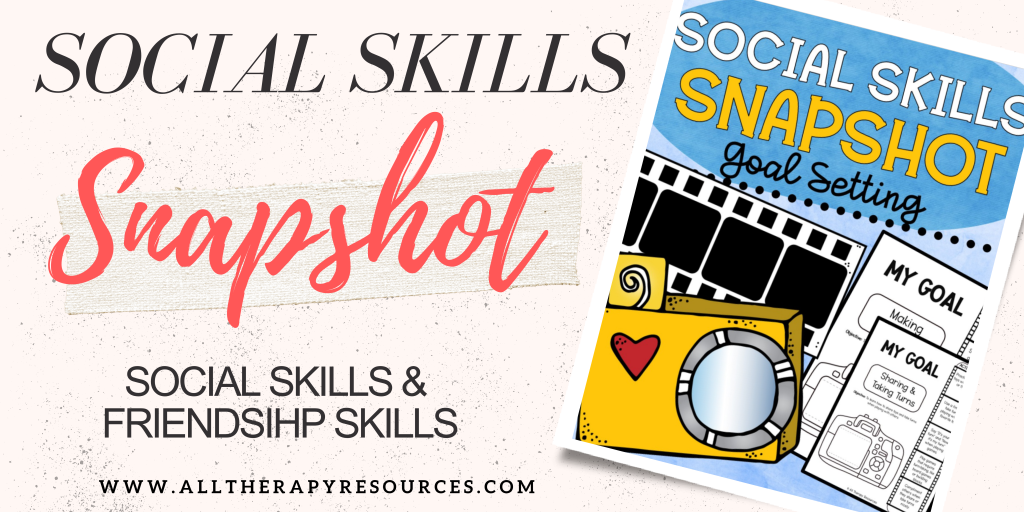
This package helps students set and reach their social goals. It includes activities and worksheets to develop and assess their skills.
SOCIAL SKILLS & FRIENDSHIP Board Game for Kids by All Therapy Resources
Turn learning into fun with this board game that teaches essential social skills and fosters friendships.

SOCIAL SKILLS Scenario Cards for Kids – Friendship Conflict Bullying
These scenario cards present various social situations, helping kids practice how to handle conflicts and communicate effectively.
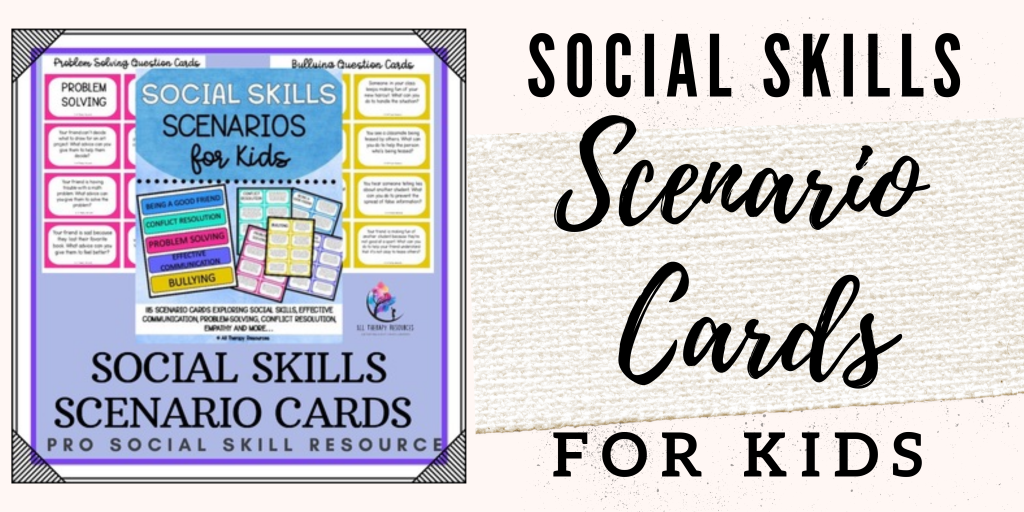
Implementing Social Skills in Everyday Teaching
Here are some easy ways to make social skills a part of your daily routine:
1. Morning Meetings
Start the Day Right: Begin each day with a short meeting to discuss social skills and set a positive tone. This can be a great way to build a sense of community in the classroom.
2. Classroom Contracts
Set Expectations Together: Create a classroom contract with your students. Let them help decide the rules and expectations for behavior. This gives them ownership and makes them more likely to follow the rules.
3. Reflection Journals
Encourage Self-Reflection: Have students keep journals where they reflect on their social interactions and set goals for improvement. This helps them become more aware of their behavior and progress.
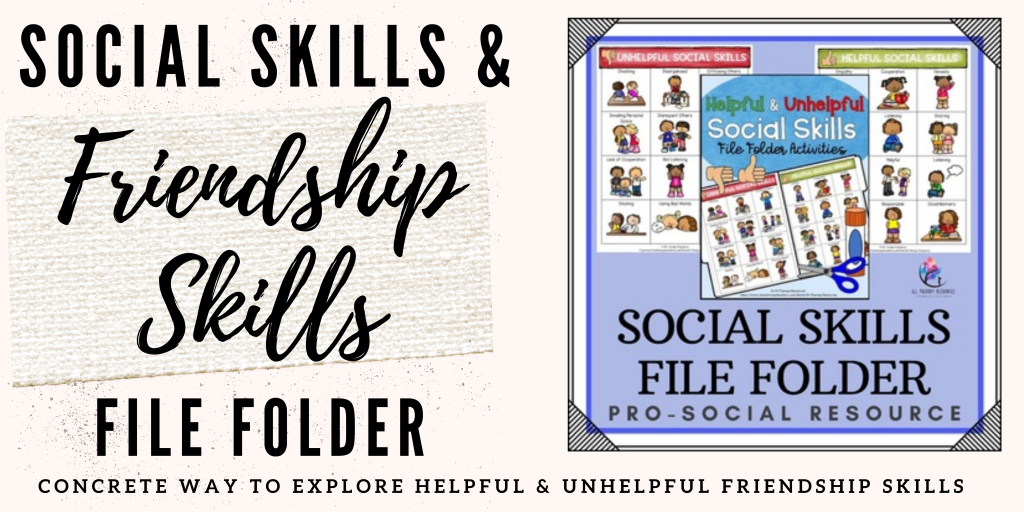
Wrapping Up
Integrating social skills into the school curriculum is crucial for developing well-rounded students who thrive both academically and socially. By using dedicated lessons, incorporating social skills across subjects, and utilizing practical resources, we can help our students become confident, empathetic, and successful individuals. So, let’s get started and make our classrooms a place where social skills shine!
FAQs
Q: How often should social skills lessons be conducted? A: Ideally, social skills should be a part of daily activities. However, you can dedicate specific lessons to them at least once a week.
Q: Can social skills education impact academic performance? A: Absolutely! Students with strong social skills tend to perform better academically because they can work well with others and handle stress effectively.
Q: How can parents support social skills development at home? A: Parents can model positive behavior, engage in role-playing activities, and encourage open communication to reinforce what’s learned at school.
